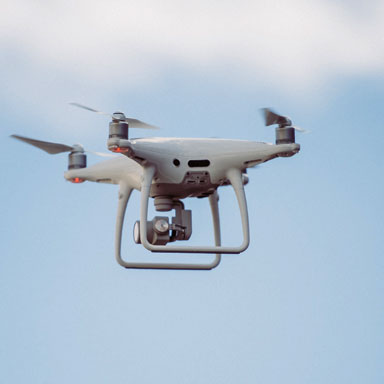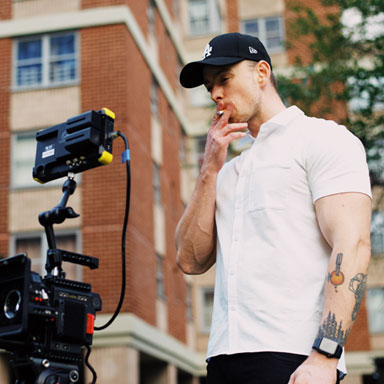First Cow
First Cow is on the double an anecdote on the human expense of humble aspiration in a slanted framework, and a festival of responsibility, endurance of soul, and vision. However, it never wanders into the ethical science in this independent movie.
“The bird’s home is a nest, the insect a web, and man fellowship.” Kelly Reichardt’s fantastic non mainstream show First Cow opens with a statement from William Blake’s Proverbs of Hell. Obviously, it is a story of fellowship and home.
Adjusted from the original The Half-Life by Reichardt’s continuous teammate Jon Raymond, the independent movie story is about two outsiders who become far-fetched friends while exploring a difficult climate, embracing it, and creating a home out of sticks and stones.
The independent movie story starts with a preface, where a lady (Alia Shawkat) and her canine buddy reveal a couple of skeletons lying one next to the other. The scene consistently changes two centuries back, in 1820 Oregon, where a wide-peered toward, easygoing Otis Figowitz (John Magaro) is seen rummaging for mushrooms. Nicknamed Cookie for his calling and apparently friendly nature, the cook serves a gathering of fur catchers. The dark horse showing up in others’ accounts’ to cushion them up, Cookie’s environmental factors are yet to solidify his immaculate soul. He coincidentally finds a bare King Lu (Orion Lee), a Chinese settler being pursued by Russian hooligans for killing one of their men.
In a landscape specked with husky fur catchers, Cookie is a genuinely kind man who offers food, garments, and asylum to King Lu. The two of them have a place with the edges, removed from their normal living space and compelled to track down a residing in an overwhelming area that offers none of the solaces of one’s home. They bond over a common feeling of vagrancy, and their persevering exertion at taking advantage of attempting conditions. They are innocently optimistic, however have the smarts to make due, yet maybe even flourish in the ruthless wild. Be that as it may, to satisfy their fantasy, they need capital. In the event that not, “then, at that point, either a wonder… or on the other hand a wrongdoing.”
Hence starts the history of current beginning up culture.
Indian crowds who have developed venerating the ageless dosti of Jai and Veeru in Sholay are decisively mindful that such kinships are deified in death. It is inevitable until their fantasies of a prosperous life are discourteously snapped, similar to the sensitive bark of a tree where King Lu roosts himself just before their “one final heist.” But it is to the credit of Reichardt that this disheartening approach doesn’t burden the good and hilarious tone of the film.
First Cow is a complicated, cross-sort of independent movie with a misleading basic article. It easily skims between sorts – a healthy pal satire, a quick dramatization on the introduction of free enterprise in present day America, the legend of the American Dream, and a thrilling heist independent movie. It unspools at a drowsy, purposely sullen speed, as scenes work out in practically continuous fashion. The rich, sweeping woodland with shards of light puncturing through immerses you in its cushiony abundances.
In any case, here, the backwoods isn’t just out of a fantasy. It is magnificent and threatening. Whenever Cookie first meets King Lu, he requests that Lu delay until he has gotten back with rewards. Lu hunches in obscurity, his anxiety bounteously clear. It is evening, and the long scene gets progressively foiling, reflecting the crowd’s expectation. Treat’s return sees just about a quick change in its tone. This is presently the authority meet-adorable.
Another long succession shows up at a critical point in the film, when the eponymous cow makes her terrific entry upon a little pontoon down a stream in 1820s Oregon. She is the primary cow in the area, imported by Chief Factor (Toby Jones), a rich European landowner. The cow-like is the image of an expanding free enterprise society, and the Chief Factor, its just proprietor. The cow is the method for creation; and for Lu, is the amazing chance to “milk the treasure trove” for Cookie’s humble yet heavenly slick cakes. Obviously, they “sell like hot cakes.”
film producer independent movie
The passage of the cow is reverberated in the preamble, where a red, magnificent freight transport crosses the water body in present-day Oregon. The boat involves practically the whole casing, cutting through the encompassing backwoods, untamed life, and streams. Its interruption into the perfect scene through a similar stream is a get back to the early “string” for simple business.
Reichardt winds around a rich woven artwork in sights and sounds. Be it covering discussions, stops, and hushes, butch men breaking into battles about nothing at neighborhood bars, or an angry voyager regularly declined the joys of gnawing into Cookie’s delectable cakes, nothing gets away from the chief’s attentive look. It is the encompass sound that Reichardt decides to feature. Cinematographer Christopher Blauvelt’s camera is reliably fixed, similar to a patient birdwatcher expecting to get a brief look at the wizardry in the everyday, the excellence in the subtle.
The downplayed nature of Reichardt’s vision is an expansion of the chief’s conviction to not forcibly feed her crowd. *Minor spoilers follow* She decides to darken the peak of the film. It is a striking move, turn by any semblance of William Shakespeare (Macbeth) and Rabindranath Tagore (Kabuliwallah). A substantial, acceptable goal is the debauchedly sweet treat to complete off a rambling five-course film. Yet, Reichardt stop her camera similarly as the two men twist up next to each other inside a trench, demonstrating her heroes’ fate is pre-planned. Presently, how it comes to pass for then is insignificant. *Spoiler ends*
First Cow is immediately a story on the human expense of humble desire in a slanted framework, and a festival of responsibility, endurance soul, and vision in reality as we know it where the chances are stacked all of the time against them. It’s anything but an ethical science illustration on imbalance and double-dealing. Rather, it permits the crowd to dive into it, and nibble at whichever lump they appreciate best.




